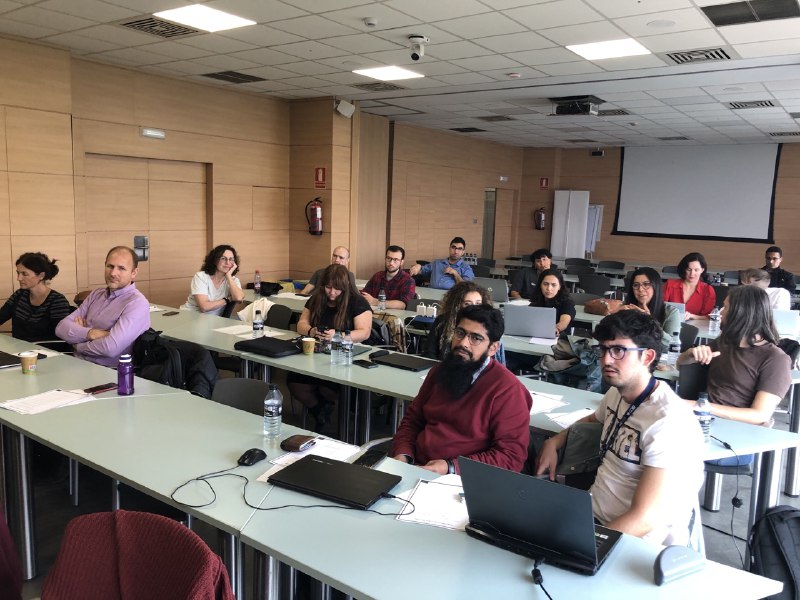«The PersonalizeAF project has made significant progress in developing more effective and personalised treatments for patients with atrial fibrillation (AF), the most common cardiac arrhythmia in Europe, with the aim of improving their quality of life. This improvement has included the education and technical training of highly qualified professionals, innovate research and technology transfer».
This is how María S. Guillem, researcher in the COR (Cardiac Oriented Research) group at ITACA-UPV and coordinator of the project, values the work carried out in PersonalizeAF (Personalized Therapies for Atrial Fibrillation. A Translational Approach), recently finished, and which has been funded by the EU’s Marie Curie H2020 programme.
The research, which lasted 48 months, was based on the reality that atrial fibrillation (AF) affects more than 6 million Europeans and is expected to double in prevalence over the next 40 years. In fact, the cost associated with AF exceeds 1% of European healthcare systems, reaching 13.5 billion euros per year.
«Despite advances in treatment strategies, there were no protocols or procedures to individualise therapies for each patient» says the deputy director of ITACA-UPV.
In this context, 18 collaborators including universities, hospitals and companies from different parts of Europe have participated in a multidisciplinary programme that has included research and training in new technologies and innovative strategies for the treatment of AF from different perspectives.
In fact, leading institutions such as the Università di Bologna, the Oxford University and the Karlsruher Institut für Technologie have been part of the programme, and their participation has been crucial to the success of the project.
«AF is a pathology that causes an irregular and often abnormally fast heart rate, affecting each patient differently. This worsens quality of life and drastically reduces life expectancy, underlining the need to personalise cardiovascular therapies,» explains Guillem.

Research details
From a scientific perspective, we have integrated data and knowledge from animal and human trials in various contexts (in vitro, in silico, ex vivo and in vivo). This holistic approach has made it possible to identify the mechanisms and characteristics of the disease, understand the effect of various therapies, create specific patient profiles and determine the best treatment.
The project has also promoted the systematic analysis of both pharmacological and surgical treatments, creating a decision-support platform that predicts the best therapeutic option for each AF patient.
«By using artificial intelligence, signal processing and stem cell research, we have personalised treatments, created new diagnostic methods and optimised patient management,» says Carlos Fambuena, Early Stage Researcher in the PersonalizeAF project and PhD student in the COR group.
In addition to research advances, PersonalizeAF has developed an innovative doctoral training programme to train 15 researchers in critical areas such as biomedical engineering, cardiology and medical technologies. This highly selective programme has provided participants with specialised knowledge and practical skills to address the most pressing challenges in the field of AF.
«Our objective has been to train a new generation of leaders in cardiology and personalised medicine, equipped to develop effective and personalised solutions for each patient,» says Dr Guillem of ITACA-UPV.
Finally, María Guillem highlighted that the results obtained in the project «represent a significant advance in the search for more effective and personalised treatments, improving the quality of life of millions of patients affected by this disease».



